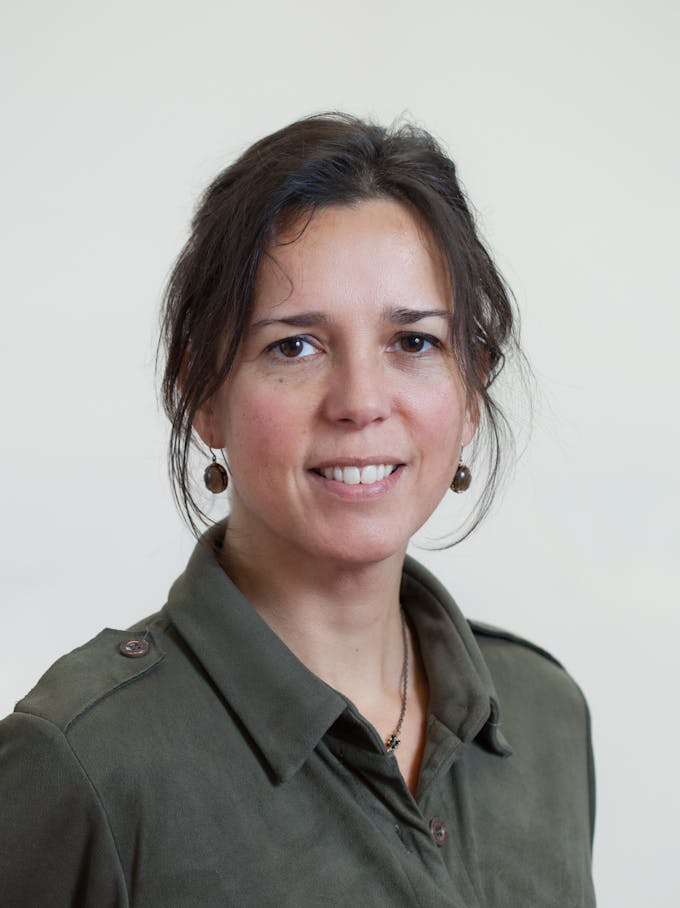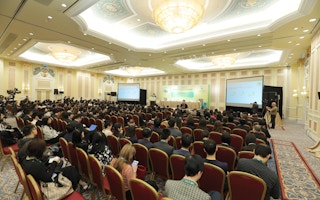Asia is undergoing an urban expansion as its cities grow in both population and economic clout; but as policymakers implement solutions to manage this growth, they must be careful to avoid taking a purely technocratic approach and focus on the needs of citizens as well.
This was the advice of urban development professor Ellen van Bueren to the region that is experiencing the world’s fastest urban growth.
Speaking to Eco-Business in a recent interview, Professor van Bueren notes that Asian cities have ample access to the latest environmental technologies and innovations, such as renewable energy, sophisticated informations and communications technology, and infrastructure that can help cities adapt to climate change.
These are necessary interventions as Asia’s rapidly expanding metropolises are significant contributors to climate change, and have massive untapped potential—as well as an urgent need— to reduce greenhouse gas emissions through solutions such as renewable energy. At the same time, many low-lying cities in Asia are also highly vulnerable to climate impacts such as rising sea levels and flooding.

Professor Ellen van Bueren is one of the speakers at the upcoming MIECF conference with the theme of “Shaping of Eco-cities for Inclusive Green Economy”. Image: MIECF
But urban planners should be well aware of the risks in implementing these solutions in a purely technocratic way, without an eye for interconnectedness with other issues that face the citizens of a specific city, says van Bueren, who is chairperson of urban development management at the Faculty of Architecture, Delft University of Technology in Amsterdam.
For instance, some Asian eco-cities have followed the “sponge city” concept which is aimed at reducing the risk of floods and managing water resources in a sustainable way, and the “greenbelt concept” for land-use planning to retain areas of undeveloped land surrounding cities.
However, these cities are also transitioning towards renewable energy sources, which require supporting infrastructure like piping, wiring and information and communications technology; resulting in a competition for land between the two priorities.
A place-based perspective can be useful in resolving such dillemas, van Bueren says. This requires decision-makers to fine-tune solutions to the needs, preferences, and challenges of people in a specific place.
“Local citizens and enterprises in the city should be included to prioritise the problems to be addressed, to adapt solutions to local circumstances and especially to look for opportunities for a local sustainable economy and job opportunities,” she said.
When it comes to addressing sustainability challenges, many Asian cities can do a good job thanks to strong leadership, and the capacity to quickly implement measures in the field of energy, waste and water management, van Bueren notes.
However, these cities also have a tendency to prioritise the other issues ahead of the values of citizens, who care about things like the quality and affordability of housing, accessibility, and opportunities for education and jobs, she said.
“
Local citizens and enterprises in the city should be included to prioritise the problems to be addressed, to adapt solutions to local circumstances and especially to look for opportunities for a local sustainable economy and job opportunities.
Ellen van Bueren, urban development management professor, Delft University of Technology
“Creating local solutions could also provide the opportunity to take more account of users of systems and to strengthen local communities,” she said.
A principal investigator on urban governance at the Institute of Advanced Metropolitan Solutions (AMS), van Bueren urges policymakers to take into account the challenges of people living in that particular neighbourhood or city before designing solutions.
“The characteristics and qualities of specific places should be used as input for the planning process, leading to solutions which align with the local culture and preferences, and support the local economy,” she says.
How to accomplish this people-centric approach to urban planning will be the key message that van Bueren will deliver at the upcoming Macao International Environmental Co-operation Forum & Exhibition (MIECF) conference, to be held in the Convention and Exhibition Center at The Venetian Macao from 12 to 14 April 2018.
A platform for the promotion of environmental cooperation between different sectors of society, the conference had 7,000 participants from 33 countries last year, with more than 450 exhibitors displaying solutions for sectors such as renewable energy, energy efficiency, air quality, green buildings, and environmental controls.
In a nod to this year’s MIECF’s theme of “Shaping of Eco-cities for Inclusive Green Economy”, van Bueren explains that there are three key strategies that policymakers can adopt to make achieve better sustainable development outcomes for cities, and the people that live in them.
First, a systems perspective should be adopted to governance and planning in cities, as it will help analyse urban challenges in the physical and institutional context, identifying opportunities that would work.
Secondly, there has to be a search for local solutions that match local opportunities and needs of local stakeholders while contributing to the United Nations’ Sustainable Development Goals (SDGs), which are a list of 17 sustainability targets adopted by the global community 2015, aimed at poverty reduction, combatting climate change and achieving a sustainable and inclusive society by 2030.
Striving to meet several SDGs at once helps to make sure that solutions are solving multiple problems at a time, and not leaving some problems to be solved by other actors, or even future generations, van Bueren says.
She adds that an interconnected and integrated urban systems holds opportunities for the efficient and sustainable use of resources, and promotes principles of reuse and recycling, while making sure that other goals, such as resilience and health, are met.
Finally, the people-centric approach may be achieved by developing and implementing solutions that require unconventional processes of collaboration between professional stakeholders from various sectors, including local communities.
Another thing that policymakers should be aware of as they plan urban infrastructure and governance efforts is that the needs of cities—and citizens—will evolve with time, and it is important to avoid creating solutions that “lock-in” specific infrastructure and make it difficult for cities to change, says van Bueren, who is a board member of BOLD cities (Big Open and Linked Data)—a group of collaborative centres between universities of Leiden, Delft and Rotterdam (Erasmus) on sustainability.
For instance, waste-to-energy solutions score well in terms of reuse of energy, but do not incentivise industries to switch to renewables as it has a long pay-back period, and it is costly and highly disruptive to shift away from this system when a city has come to depend on it.
“Interconnecting systems, allowing efficient use of resources, holds many promises but requires careful consideration,” she says.
Professor van Bueren adds: “Implementing such systems also requires a new regulatory framework and organisational structures, including a definition of roles and responsibilities of the different organisations and authorities involved.”


















